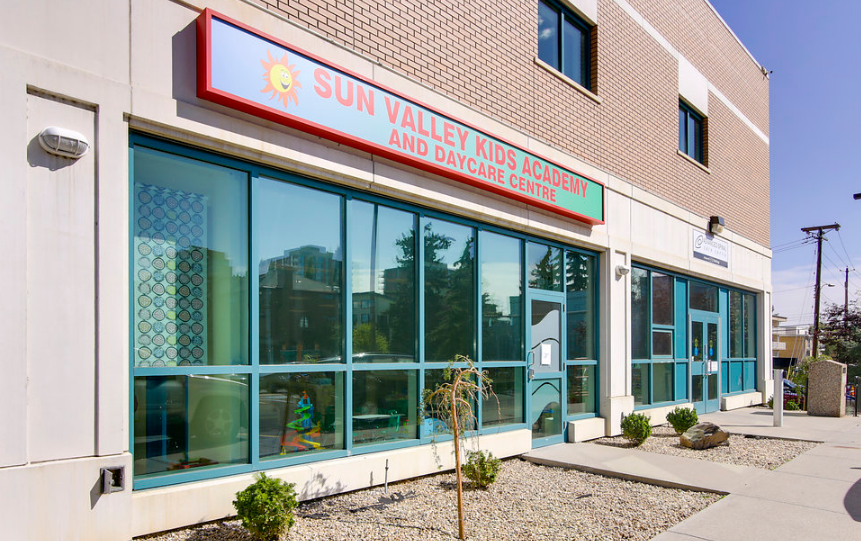Editorial Roundup: New York
Posted Jul 29, 2020 5:01 pm.
Last Updated Jul 29, 2020 5:15 pm.
Recent editorials of statewide and national interest from New York’s newspapers:
The World’s Covid Resurgence
Wall Street Journal
July 28
Remember the stories blaming America’s virus resurgence on states reopening too fast and praising other countries for crushing the virus with lockdowns? Well, flare-ups are now occurring in several countries that recently eased their lockdowns and travel restrictions. Victory declarations anywhere are premature.
New cases doubled in Spain over the weekend and are up six-fold in a month. Government officials have tied cases to migrant farm workers, tourists, family gatherings and young people partying. Catalonia, a tourist region known for vineyards and beaches, this weekend ordered the closure of night clubs and late-night bars. “Certain generations haven’t remained vigilant,” Spain Ministry of Health emergency director Fernando Simón said. Governors Doug Ducey of Arizona and Greg Abbott of Texas can sympathize.
The United Kingdom has imposed a quarantine on travellers returning from Spain, which could be a blow to its tourism industry and economy that are trying to revive. But as Spanish officials point out, flare-ups have occurred across Europe since countries reopened their borders and economies a month ago.
Germany recently reported an outbreak in Bavaria tied to migrant farm workers from Romania. Last week France’s Directorate General of Health warned “the circulation of the virus is increasing” after the country recorded more than 200 outbreaks. France is recording twice as many new cases per day as two weeks ago and last week mandated masks in public spaces.
Australia’s new daily cases have increased 11-fold in the last month. Cases have increased though Australia’s government locked down Melbourne. Civil disobedience is rife. Nearly 90% of the infected didn’t isolate between the time they started showing symptoms and were tested, Victoria Premier Daniel Andrews recently noted. More than half of those infected didn’t isolate after being tested and when they got their results.
Japan and Hong Kong—both hailed as models of infection control—are also experiencing flare-ups tied to travellers and social gatherings. Japan’s daily new cases have increased six-fold in the last month. Hong Kong is reporting 136 new cases each day on average, up from two four weeks ago, and on Monday it banned dine-in restaurants and gatherings of more than two.
Japanese Prime Minister Shinzo Abe says he doesn’t believe it’s necessary to shut down businesses since most cases so far are among young people and hospitals have ample capacity. This is the same approach most Republican states are taking, and that Arizona, Texas and Florida took until some hospitals became strained.Democrats blame the U.S. case surge on inadequate testing and contact tracing. But the U.S. has averaged two to three times more tests per capita than most European and Asian countries. Arizona, California, Florida, and Texas all were doing more tests per capita when they lifted their lockdowns than Germany, Spain, France and South Korea have averaged.
More testing can help isolate infected individuals and identify asymptomatic cases. Delays in returning testing results in the U.S. has made it harder for states to do contact tracing. But contact tracers in many places, including the U.K. and New York, have reported other logistical challenges including getting people to share personal information.
In any case, more testing and contact tracing won’t do much good if people don’t self-quarantine or can’t because they live with family in cramped housing. The latter is a problem in many U.S. hot spots. Mandating face masks could reduce spread in public settings but isn’t a panacea, especially if young people don’t comply and ignore social distancing.
Spanish night clubs required face masks, but pictures showed young people wearing them on their chins. Most people in U.S. hot spots were wearing face masks before governments mandated them. According to global data firm Dynata, face mask use in early July was around 80% in Houston, southeast Florida and New York City.
Amid the post-lockdown flare-ups, it’s worth revisiting Sweden, which has been widely criticized for never closing businesses and primary schools. Cases have been falling over the past month after a modest uptick in June due to more testing. Only 27 patients have died in the last week, fewer per capita than New York.
America’s liberals cite Sweden’s relatively high death rate (56 per 100,000 compared to 45.1 in France and 35.8 in the Netherlands). But two-thirds of deaths have been among those over age 80, and 97% never received intensive-care treatment. Blame Sweden’s socialized health system, which rationed treatment for the elderly even though ICUs were never overwhelmed.
The lesson is that the virus won’t disappear anytime soon. Governments may have to impose some business and social restrictions to protect hospitals and the vulnerable. But lockdowns aren’t a miracle cure, and their collateral damage is too severe to sustain.
Online: https://on.wsj.com/2Xaxkst
___
Crowded bars face crackdowns
Newsday
July 28
Must be nice to forget about the pandemic.
That’s the only explanation for what happened among the crowd of people who appeared close to a stage and not social-distanced in a video of a Saturday Water Mill charity concert, which included performances from electronic music duo The Chainsmokers, Southampton Town Supervisor Jay Schneiderman, and “DJ D-Sol.” That last is Goldman Sachs chief executive David Solomon, according to the concert organizer’s “Event Overview” included in the permit. It was billed as a “drive-in music experience in the famous summer hot spot, the Hamptons,” with the assumption that people would stay safely separate in and around their cars. Video suggests there was mingling by the end and a shocking lack of oversight by the town. Schneiderman now expresses regret about what happened.
The disregard for other people’s health and safety is glaring, made worse by the arrogant impression that wealth might protect you from following mere governmental guidelines. The state is investigating how this mess was allowed to happen, including actions taken by promoters, the town, and local law enforcement. That’s good. No one is above the law or pandemic-related executive orders.
That includes pleasure-seekers with less money in their wallets who have been looking for their kicks in Long Island bars and clubs. We must commit to being careful. Current state guidelines allow bars and restaurants to serve drinks and food but with smart limits. Those rules on capacity and requirements regarding masks and social-distancing have helped New York State cling to a low infection rate, even as the virus climbs elsewhere. Places like Texas and Kentucky have been forced into even more limits on bars. Many of these outbreaks appear linked to the activities of young adults, the same cohort in New York that has had an alarming jump in infections.
We don’t want New York’s infection rate to climb, further jeopardizing our local economy and disrupting our lives. To avoid it, businesses and patrons need to be sensible and think about the greater good.
Gov. Andrew M. Cuomo on Tuesday announced a new round of liquor license suspensions for bars found to be egregiously violating pandemic-related executive orders, bringing the statewide total to 45 places with licenses suspended and 503 fines. Repeated, flagrant offences must be addressed. So it’s smart that Nassau and Suffolk county police will work this weekend to help State Liquor Authority enforcement teams identify and crack down on offenders.
Some Long Island spots have been part of the problem over the last few weeks and have had their licenses suspended — Island Park’s Dox, which the state says was warned about congregation, and Secrets Gentleman’s Club in Deer Park, which featured shared stage poles. Liquor license suspensions can be disastrous for businesses, and it’s important that they are allowed to have expedited hearings to get suspensions lifted when warranted. But when they are undermining public safety, they should be shut down.
Don’t forget about the pandemic. The virus doesn’t make mistakes, we do.
Online: https://nwsdy.li/30bSmsU
___
Coronavirus decimated local government finances. Congress, send help
Syracuse Post-Standard
July 26
Onondaga County Executive Ryan McMahon has a message for Senate Majority Leader Mitch McConnell: “We need help.”
McConnell and Senate Republicans must answer that call by sending aid from its next coronavirus relief package to state and local governments — the units of government actually leading the public health response to this global health crisis.
So far, Congress has pumped $3 trillion into the economy to cushion the severe impact of the pandemic. Lawmakers sent payments directly to Americans, expanded unemployment benefits, awarded grants and loans to large and small businesses, and aided airlines and hospitals.
Some local governments got federal aid, but Syracuse and Onondaga County were passed over. That can’t happen again.
To leave local governments (and local taxpayers) holding the bag is shortsighted. Unlike the federal government, local governments have to balance their budgets. To cover the shortfalls in revenue and increases in expenses, local governments will have to slash jobs and essential services. That would deepen the economic downturn, slow the recovery and weaken the on-the-ground response if (when) another wave of the virus hits.
McMahon figures Covid-19 has had a $100 million impact on county finances, when you add up the cost of the public health response to the pandemic, a $40 million to $65 million drop in sales tax revenue due to business closures, and $5 million in lost hotel tax revenue due to travel restrictions. He already has cut $50 million, through 225 furloughs, a hiring freeze affecting more than 200 positions, and an early retirement incentive.
If federal aid is not forthcoming, McMahon warns the county will have to make painful budget cuts in areas that directly affect public health and public safety.
“This is no joke,” he said during a briefing Thursday.
The City of Syracuse also is preparing to cut “everything that isn’t tied down” to close a $25 million budget gap. Already, Mayor Ben Walsh furloughed 104 employees, froze hiring and cut city parks and pools.
It could get even worse for both the county and the city if Gov. Andrew Cuomo follows through on proposed cuts in state aid to municipalities.
The House of Representatives already passed a $3 trillion aid package that includes $1 trillion in aid to state and local governments. Onondaga County would be in line for $172.6 million this year and $86.3 million next year. Syracuse would get $242 million this year and $121 million next year.
Senate Republicans are expected to unveil their $1 trillion aid package on Monday, the opening bid in negotiations with House Democrats. It is unlikely to include money for state and local governments. Senate Minority Leader Chuck Schumer, D-NY, continues to press for it.
McConnell has said the Senate bill will include more than $100 billion in funding for reopening schools under new safety protocols. The House bill includes $430 billion for schools to reopen.
The Trump administration wants to condition federal school aid on schools reopening this fall. As the virus surges in parts of the country and the president’s poll numbers sink, that seems to be more of a political calculation than a public health one. It would be a mistake to incentivize schools to open if local conditions are unsafe for students and staff.
As Congress hashes out the next coronavirus relief package, it should hear the pleas of local government officials from both parties. As our Republican county executive said last week, “There’s no time for politics in pandemics.”
Online: https://bit.ly/315YcLE
___
Dr. Enyedi faces big challenge
Adirondack Daily Enterprise
July 22
When you try to think of people who deserve the public’s sympathy more than most, perhaps the name Alexander Enyedi comes to mind. If it doesn’t, it ought to.
For those who have forgotten, or possibly haven’t yet encountered the name, Dr. Enyedi is the practically-brand-new president of SUNY Plattsburgh.
He hasn’t been in the news as much as most of his predecessors have at a similar stage of their time on the job because circumstances have pushed him off the front page. Or just about any other page.
Enyedi took over as president the first of this year. It was somewhat of a challenging time to slip into the front seat and steer the great institution’s destiny.
The past five years, or so, have been a time of historic transition. A number of key, longtime leaders have retired or left the college during that time, including John Homburger, who was in charge of finances; Richard Higgins, who was in charge of enrolment; Dr. Thomas Moran, who at one time or another was in charge of just about everything else; and Keith Tyo, who was executive assistant to the president.
But Enyedi had had equally daunting challenges at Humboldt State in California and Western Michigan before that. Staff evolutions were nothing he couldn’t survive and even thrive through.
Then came the coronavirus pandemic. Now, there’s a development that would cause even a seasoned president to take a deep breath.
Before he even had everybody’s name committed to memory, Enyedi was forced to call off the conventional spring semester and devise a means for setting up an unprecedented one for autumn.
It is a predicament that will have a chapter of its own in the college’s annals. And resolving it is left to a new chief executive who is just beginning to become intimate with the community, as well as the school.
However, he wouldn’t have been chosen by a search committee and the trustees if he hadn’t shown the capacity to confront such a mess. He was and he had.
As of now, the college is in a step-by-step process of preparing for an in-class semester. Phases began June 3 and will be completed July 27 to get the administration, the faculty and the rest of the staff ready for registration Aug. 3 and in-person classes Aug. 24.
A dizzying array of steps are required, such as ensuring face covering and social distancing by all, cleaning and hygiene of facilities, health screenings, campus signage, providing enough faculty and consolidation of courses.
All of this requires far more money than is in the budget, of course, and the state is also well over its own budget.
Meanwhile, preparations must be in place to shift at once to virtual classes for the second part of the semester — or sooner, in case things suddenly go completely awry.
These are 18-to-22-year-olds whose behaviours are so crucial, after all – 5,200 of them. They are needed to pay the bills, remember.
All we can say to Dr. Enyedi at this point is: Keep up the great work. So far, so good.
We’re all rooting hard and greatly admire your grit and your talent.
Online: https://bit.ly/3f78gbX
___
The Community Should Support The Lakewood Hospice House
Post-Journal
July 29
Chautauqua Hospice and Palliative Care helps hundreds of families in our community through a family’s most heart-wrenching times each year.
For one man recently, the thought of facing the end of his life without his hospice caretaker was too much to bear and the man tried to wander away. The incident prompted Liz Frederick to wonder if it was possible for Hospice to have in-home, 24-hour care for patients in the end of life.
Frederick’s question — prompted by concern for her neighbour — was the start of a capital campaign to turn a Lakewood house into a hospice house. Currently the closest hospice house is in Warren.
To date, $1.1 million has been raised from donors and foundations toward the $2.1 million project, and the residence is expected to open next year. The facility, which is located next to CHPC’s administrative offices on Fairmount Avenue in Lakewood, will include five patient rooms to accommodate the diverse medical needs of patients. CHPC expects to serve more than 200 patients a year at the hospice residence. To support the effort, visit https://chpc.care/hh and find the “Donate” button.
The Lakewood hospice house is a wonderful extension of the cherished work Chautauqua Hospice and Palliative Care provides in our community. It will provide a comfortable place for a loved one to receive medical care in a home-like setting at the end of their life when comfort and peace of mind is all that can be provided.
This is a worthy effort that we hope the community will support.
Online: https://bit.ly/2BKzV54
___
The Associated Press










